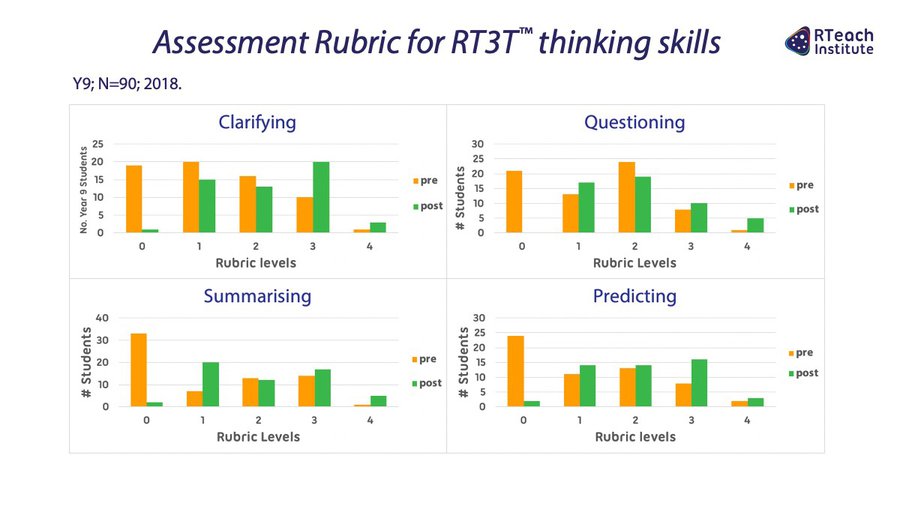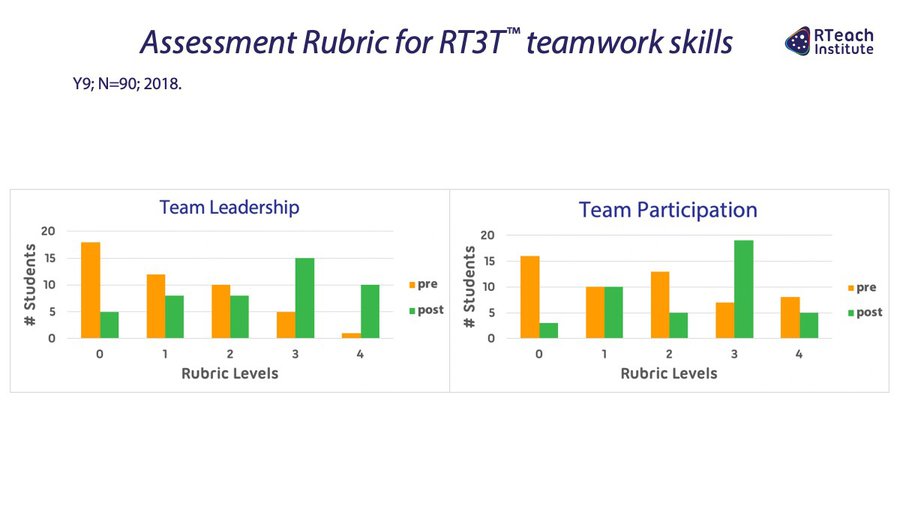RT3T™ Results in High Schools
Reciprocal Teaching - RT3T™ works for High Schools
Reciprocal Teaching - RT3T™ has led to significant progress towards national reading norms among Y9 ākonga after 12–15 intensive coaching sessions.
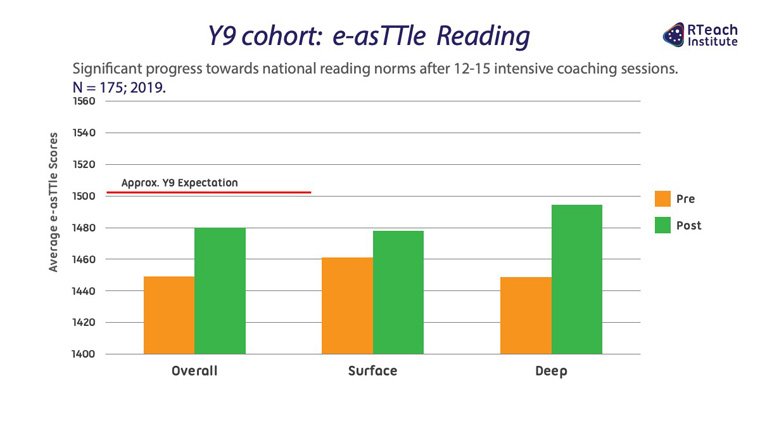
RT3T™ boosts thousands of Māori ākonga
When carefully implemented by a skilled trained teaching team, Reciprocal Teaching - RT3T™ has seen significant progress towards national reading norms for thousands of Māori ākonga.
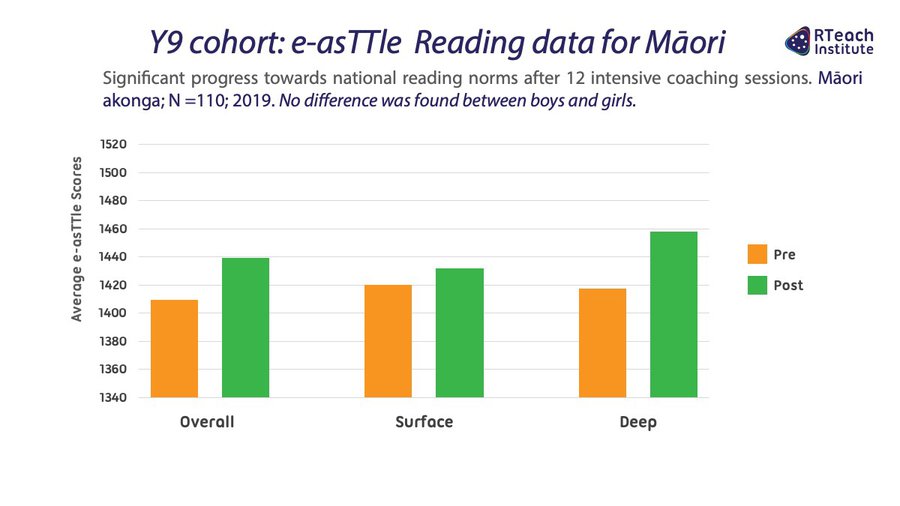
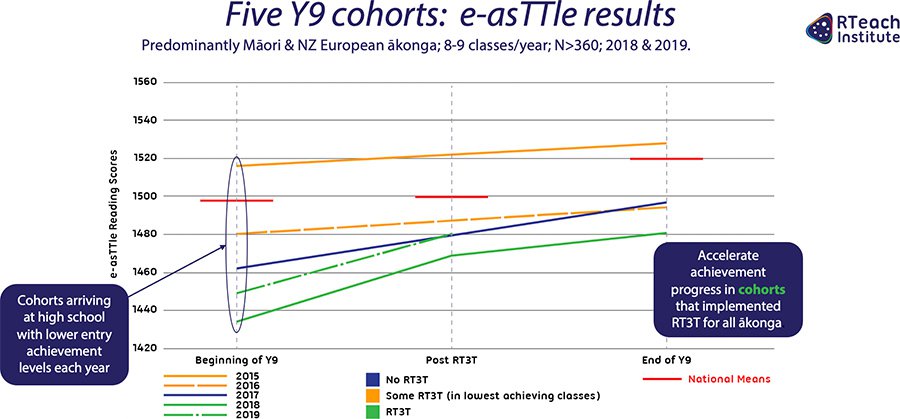
RT3T™ has lasting impact on thousands of Pacific ākonga
6 years of data on the implementation of Reciprocal Teaching - RT3T™ within large Māori, Pacific and multi-cultural schools. –2020
Results show a marked impact on achievement – after just a few weeks, with upward trends continuing, even after holiday and COVID breaks, and into NCEA.
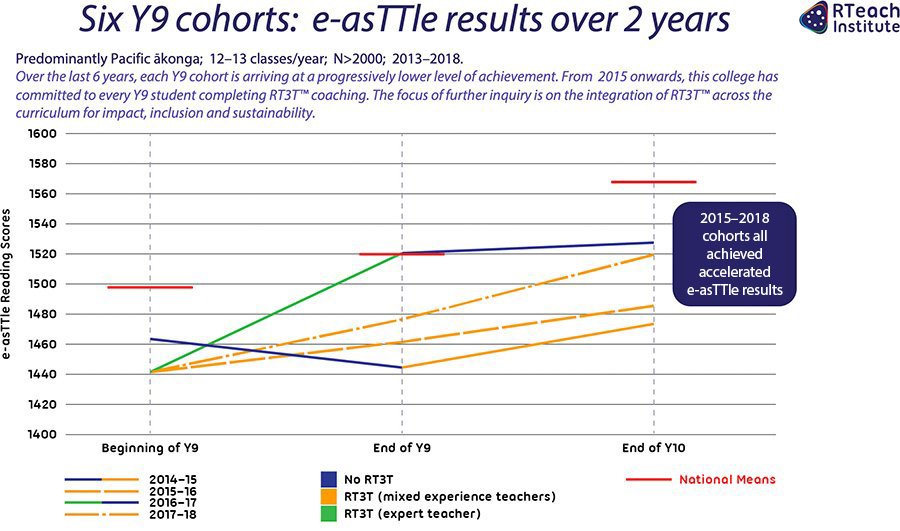
Short term and longer term
– and preventing the summer slump and the COVID slump
RT3T™ schools are continuing further with the intensive coaching – extending into every year level continuously or more variably, from year 4 to year 13, with ākonga continuing to show progress each year.
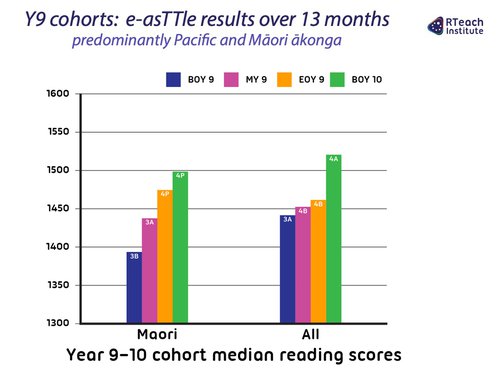
Three RT3T™ secondary schools are reporting that upward trends are continuing as cohorts progress through school, with improvement seen in NCEA and scholarship results.
These 2017 results show RT3T™ can work as a powerful pedagogy for all ākonga – irrespective of prior achievement level and ethnicity.
RT3T™ has immediate and delayed acceleration leaps – even after the summer holiday slump, reversing the slump – shown by the high green bar for each class.
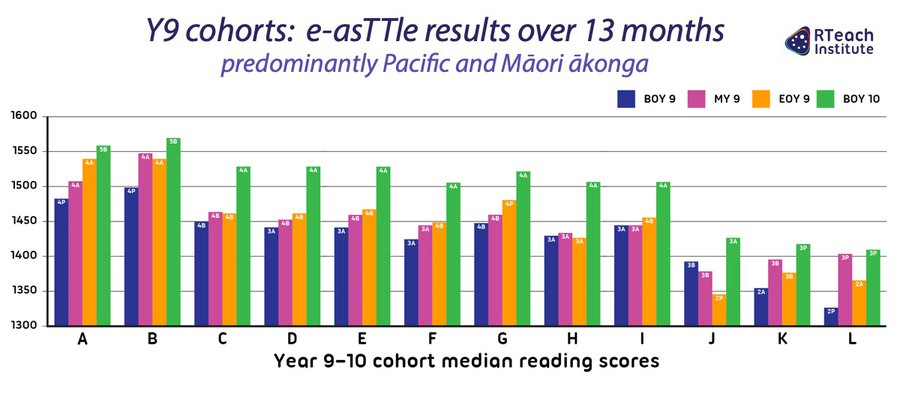
RT3T™ works with science and cross-curricular
Reciprocal Teaching - RT3T™ provides a catalyst for school leadership to strategically plan across learning areas, with a focus on inclusion, differentiated learning and overall instructional continuity for students who require extra or different support.
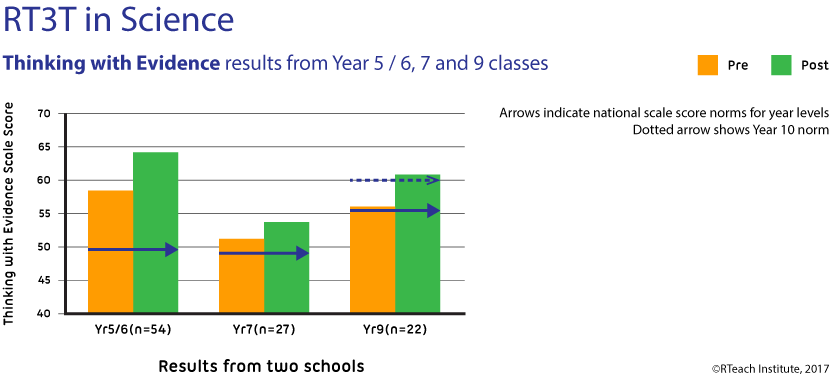
RT3T™ promotes inclusion and proactive Learning Support
- Reciprocal Teaching - RT3T™ is grounded within one of the most effective evidence-based inclusive methods we know and presents multiple opportunities within safe social contexts for diverse students to develop, practice, improve and transfer their key thinking and socio-emotional competencies for learning and life.
- When students who require extra support have scaffolded skilled support and /or adaptation of RT3T™, they can enjoy belonging to their peer group and assuming teamwork and tuakana-teina relationships, becoming empowered learners, and learning both thinking and kanohi ki te kanohi collaborative skills.
- RT3T™ includes Behaviour Skills Training (BST), for sustainably improving essential skills such as those required for communication, social situations and safety, and task engagement. Students who gain benefit from BST include those with Down Syndrome and with challenging behaviours, as well as neurodiverse students with Autistic Spectrum Disorder, Attention Deficit Disorder, Attention Deficit with Hyperactivity Disorder, Pervasive Developmental Disorder, Foetal Alcohol Syndrome.
